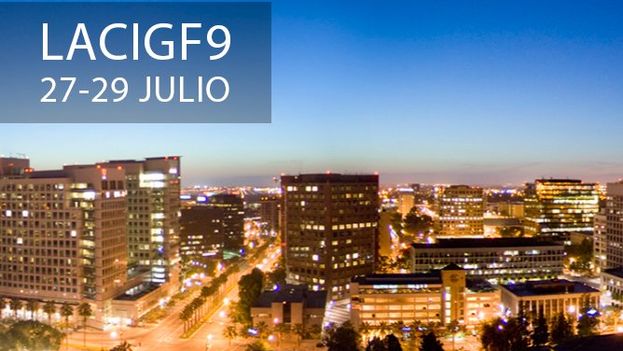
![]() Regina Coyula, Havana, 26 July 2016 — ¿Gover… what? That reaction has become increasingly familiar in a conversation discussing internet governance. Although many users who take advantage of it aren’t aware, governance is a fundamental issue for everyone when we venture out onto the World Wide Web. That our family email travels equally with the statistics of scientific research, with an online purchase, or with a bank account statement, is thanks to governance.
Regina Coyula, Havana, 26 July 2016 — ¿Gover… what? That reaction has become increasingly familiar in a conversation discussing internet governance. Although many users who take advantage of it aren’t aware, governance is a fundamental issue for everyone when we venture out onto the World Wide Web. That our family email travels equally with the statistics of scientific research, with an online purchase, or with a bank account statement, is thanks to governance.
Behind any familiar and easily remembered address is a long string of numbers without which the internet couldn’t function. Early developers realized that the ordinary user would be unable to recall those long strings of numbers and so created a protocol to tie them to a name. Name and number indissoluble leading us unmistakably to the desired destination. These technical protocols that make our lives easier, also have to do with governance.
Governance, a term originally applied in the social sciences, has gained strength within international organizations, and in the case of the internet, seeks interactions and consensus among interested parties, or an English word that is difficult to pronounce – multistakeholders – (multiple interested parties, academia, businesspeople, leaders and civil society).
The natural result of this interaction are world forums on governance, very fruitful meetings where those who participate know each other personally and engage in discussions at committee and plenary sessions. Prior to these world forums which have been held since 2006 and which this year will take place in Guadalajara, Mexico, in December, preparatory meetings will be held by geographic region and, in some case, even national groups. The meeting for Latin America and the Caribbean will be held in San Jose, Costa Rica, between 27-29 July.
The sessions approved for the meeting include:
- Security and privacy – Concerns about cybersecurity and confidence in the digital environment.
- The situation of human rights on-line in Latin American and the Caribbean: advances, challenges and trends.
- Evolution, progress and challenges of the implementation of a multi-sector approach to the work of public policy and Internet governance at national and regional levels.
- Lessons on the development and implementation of strategies for providing access and legal initiatives on network neutrality: What are the next steps to ensure open and interoperable internet in the region?
- Expand understanding with regards to the responsibilities of internet intermediaries: the scope and limits of their responsibilities in the digital ecosystem.
- The balance between intellectual property and access to knowledge: the scope and impact of interregional trade agreements in the regulatory ecosystem.
- Persistent and emerging challenges for Internet access: Connecting the next billion.
- Integration of Internet governance with the 2030 Sustainable Development Agenda: What are the priorities of the region for digital inclusion?
- A multi-stakeholder perception of the digital economy.
- Future of Governance of the Internet Forum of Latin America and the Caribbean (LACIGF).
Undoubtedly, the meeting will address the issue of the independence of the US government’s Internet Corporation for Assigned Names and Numbers (ICANN), which will go into effect in September, and how ICANN, as a highly hierarchical international organization should guarantee the technical standards of internet quality: interoperability, scalability, and resistance to potential failures; but also the sovereignty of the virtual space, the equality of all users, the privacy of data, freedom of expression and the right to information, and also deal with cybersecurity. All of this in the context of a lack of rules for its proper use which diminish individual rights or national security, or favor some to the detriment of others.
Cuban civil society will be present at this event with a small representation, something that has no precedences but that could be very healthy for a citizenry that is just beginning to open itself to an internet that has restricted access and a censorship of opinions, and that is disregards of the rights that come solely by connecting to the world, human rights recognized as equals, in real space as in the virtual.
